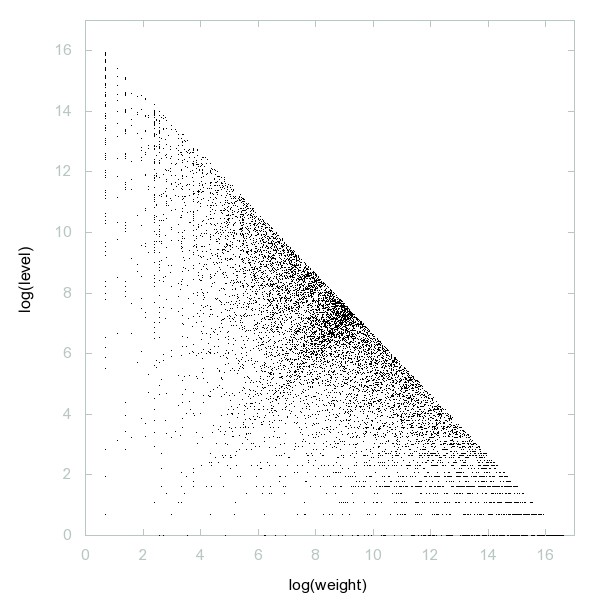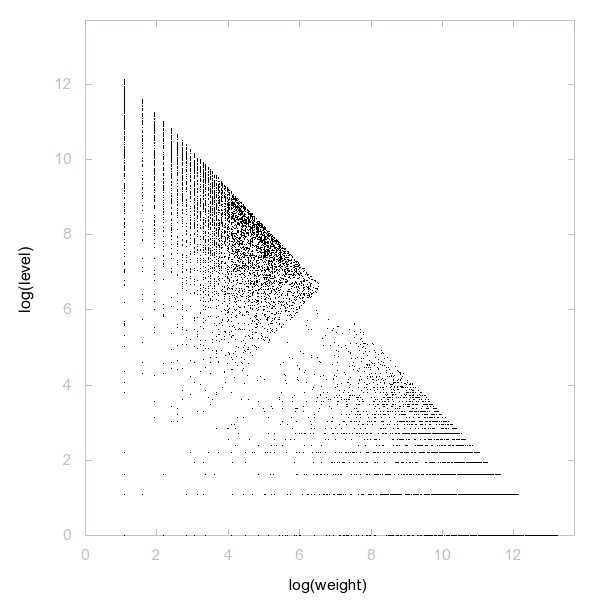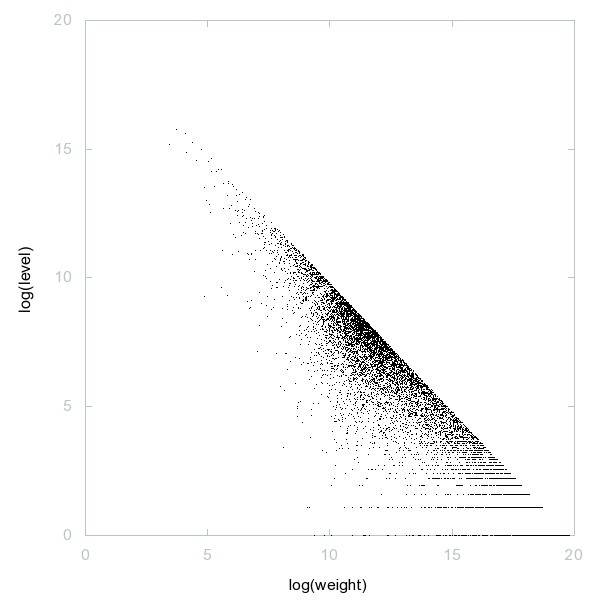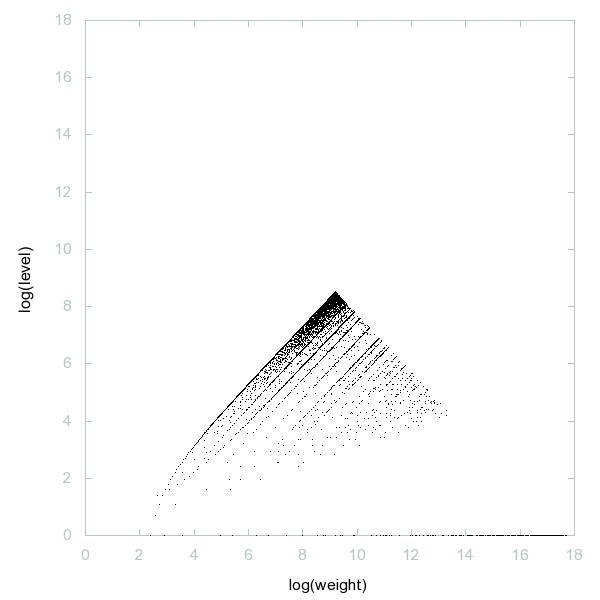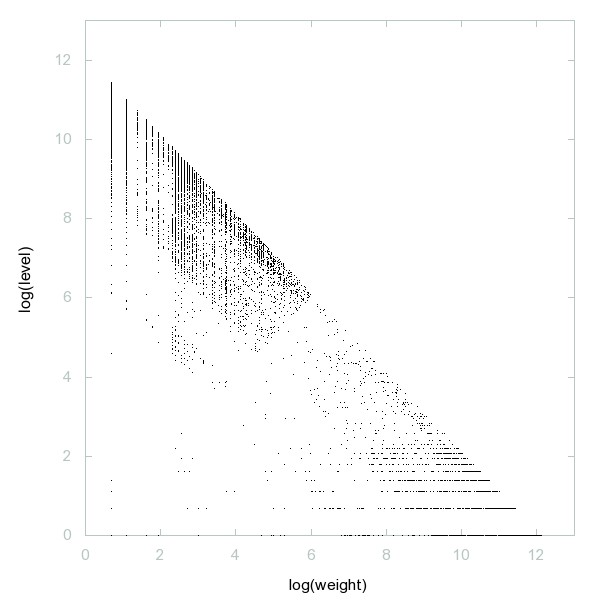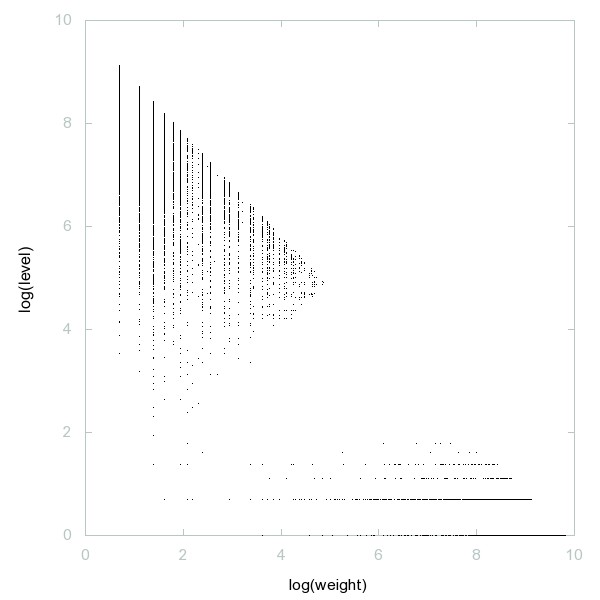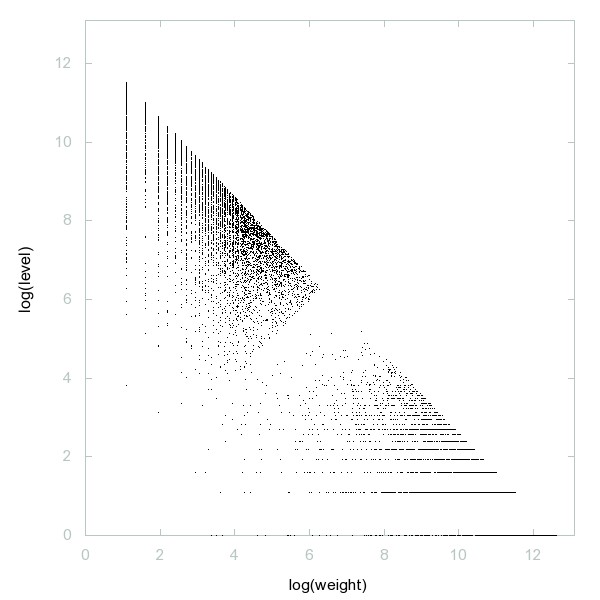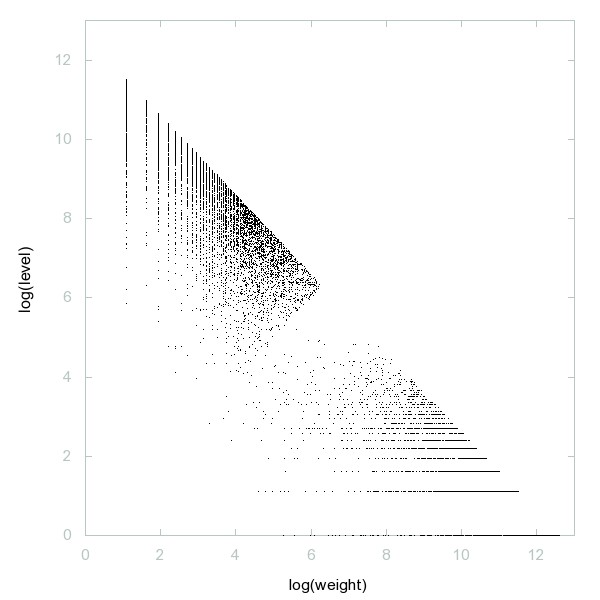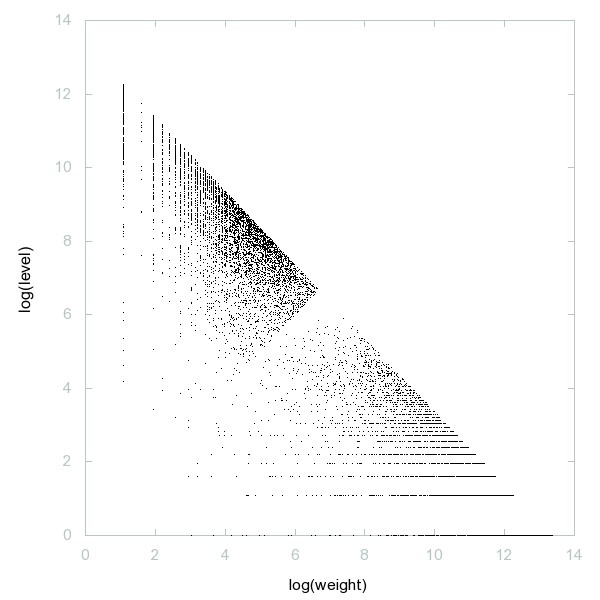Decomposition of Tetrahedron-tree numbers
Tetrahedron-tree numbers: a(n)=sum(b(m),m=1..n), b(m)=1, 1,3, 1,3,6, 1,3,6,10,..., 1,2,...,i*(i+1)2.
Decomposition of A051750
Primes whose cubes lack zeros.
Decomposition of Doubly balanced primes
Doubly balanced primes: primes which are averages of both their immediate and their second neighbors.
Decomposition of Truncated triangular numbers
Truncated triangular numbers: a(n)=n*(n+1)/2-9.
Decomposition of A052018
Numbers n with property that the sum of the digits of n is substring of n.
Decomposition of A052020
Sum of digits of n is a prime proper factor of n.
Decomposition of A052026
Composites base 10 that remain composite in all bases b, 2<=b<=10, expansions interpreted as decimal numbers.
Decomposition of A052032
Primes base 10 that remain prime in one (and only one) other base b, 2<=b<10, expansions interpreted as decimal numbers.
Decomposition of A052033
Primes base 10 that are never primes in any smaller base b, 2<=b<10, expansions interpreted as decimal numbers.
Decomposition of A052034
Primes such that the sum of the squares of their digits is also a prime.
